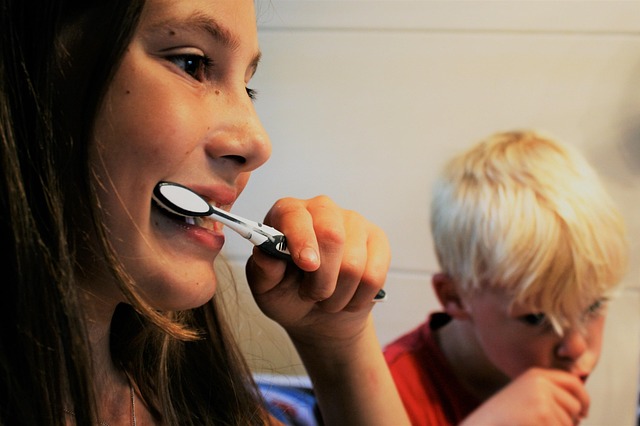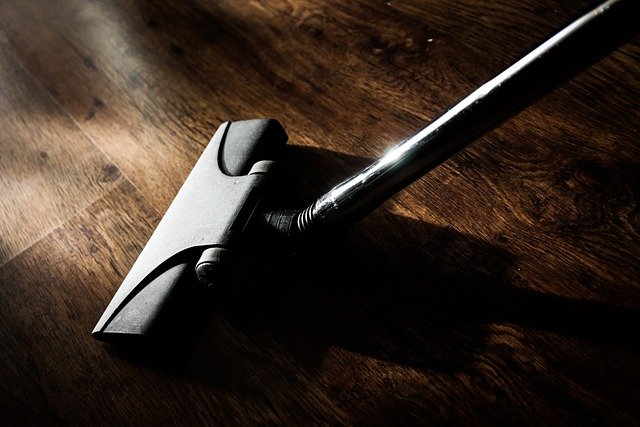Top Reasons Why Short Cleaning Sessions Can Be More Effective Than Long Ones
Shorter cleaning sessions may seem less thorough, but for many households they deliver surprisingly strong results. These brief, structured routines reduce overload, improve consistency, and align better with the natural flow of daily life. Instead of relying on rare, exhausting deep-clean days, people are turning to approaches that spread tasks out in manageable segments. Learn why this shift is gaining momentum and what benefits it brings.

The traditional approach to home maintenance often involves setting aside large blocks of time for intensive cleaning marathons. Yet this method can lead to exhaustion, procrastination, and inconsistent results. Understanding how shorter cleaning intervals can outperform lengthy sessions requires examining the psychology of task completion, energy management, and the practical realities of modern household routines.
Benefits of Short and Frequent Cleaning
Regular brief cleaning sessions offer numerous advantages over sporadic deep cleans. When you clean for 15 to 30 minutes daily or every other day, dirt and clutter never accumulate to overwhelming levels. This prevents the formation of stubborn grime that requires intensive scrubbing during marathon sessions. Frequent attention to high-traffic areas keeps surfaces manageable and reduces the need for harsh chemicals or excessive physical effort.
Psychologically, shorter tasks feel less daunting and are easier to initiate. The mental barrier to starting a 20-minute cleaning routine is significantly lower than committing to a three-hour session. This accessibility means you are more likely to maintain consistency, which is the true foundation of a clean home. Additionally, completing small cleaning goals provides regular satisfaction and momentum, reinforcing positive habits without the burnout associated with exhaustive cleaning days.
From a practical standpoint, brief sessions fit naturally into daily routines. You can wipe down kitchen counters while coffee brews, vacuum one room before dinner, or quickly organize a closet during a work break. This integration eliminates the need to sacrifice entire weekends or evenings to household maintenance.
Why Long Cleaning Sessions Lose Effectiveness
Extended cleaning marathons suffer from diminishing returns as time progresses. Physical and mental fatigue set in after the first hour or two, reducing attention to detail and increasing the likelihood of mistakes or missed spots. When tired, people tend to rush through tasks or skip steps entirely, undermining the purpose of the extended effort.
Long intervals between cleaning sessions allow dirt, dust, and clutter to build up substantially. What could have been a quick wipe becomes a scrubbing project. Bathroom soap scum hardens, kitchen grease becomes baked on, and dust settles into fabrics and crevices. The effort required to address these accumulated problems far exceeds what would have been needed with regular maintenance.
Another issue with infrequent deep cleans is the disruption they cause to household routines. Blocking out half a day for cleaning can interfere with family activities, personal time, and other responsibilities. This scheduling challenge often leads to postponement, creating a cycle where cleaning gets delayed until the home reaches an unacceptable state, then requires even more intensive effort to restore.
Structured Routines That Improve Home Maintenance
Creating a structured cleaning routine maximizes efficiency and ensures comprehensive coverage without overwhelming time commitments. A zone-based approach works well for many households: assign different areas to specific days of the week. Monday might focus on bathrooms, Tuesday on kitchen deep spots, Wednesday on bedrooms, and so forth. Each session need only last 20 to 30 minutes but keeps every area consistently maintained.
Task batching within these short sessions increases productivity. Rather than cleaning an entire room at once, focus on one type of task across multiple rooms. For example, spend 15 minutes dusting all surfaces throughout the house, or dedicate 20 minutes to vacuuming all floors. This approach reduces the mental load of switching between different cleaning methods and tools.
Incorporating cleaning into existing habits leverages behavioral psychology. Attach cleaning tasks to established routines: wipe the bathroom sink after brushing teeth, clear kitchen counters immediately after meals, or do a quick toy pickup before bedtime. These micro-habits require minimal additional effort but compound into significant cleanliness over time.
Time-Efficient Habits for Busy Households
Busy households benefit enormously from adopting time-efficient cleaning strategies. The two-minute rule proves particularly effective: if a task takes less than two minutes, do it immediately rather than adding it to a list. This prevents small tasks from accumulating into overwhelming projects. Putting away shoes, hanging up coats, or wiping a spill takes mere moments but prevents clutter buildup.
Multitasking during other activities maximizes productivity without requiring dedicated cleaning time. Listen to podcasts or audiobooks while tidying, involve children in age-appropriate tasks to teach responsibility while getting help, or clean during commercial breaks if watching television. These strategies make cleaning feel less like a chore and more like a natural part of daily life.
Prioritizing high-impact areas ensures visible results even with limited time. Focus on spaces that affect daily function and guest impressions: entryways, kitchens, and main bathrooms. Keeping these zones consistently clean creates an overall impression of tidiness even if less-visible areas receive attention less frequently.
Common Misconceptions About Brief Cleaning Sessions
Many people mistakenly believe that short cleaning sessions cannot achieve deep cleanliness. In reality, consistent brief maintenance prevents the need for most deep cleaning. When surfaces never develop heavy buildup, standard cleaning methods remain effective. The occasional targeted deep clean for specific areas like ovens or behind appliances becomes manageable rather than overwhelming.
Another misconception holds that frequent cleaning wastes more time overall than periodic intensive sessions. Time-tracking studies show the opposite: distributed cleaning typically requires less total time because tasks remain simple and quick. A 15-minute daily routine totals 105 minutes weekly, often less than a single exhaustive cleaning session, yet maintains superior results.
Some worry that brief sessions lack thoroughness or miss important tasks. However, structured routines with rotating focus areas ensure comprehensive coverage over time. Each area receives attention regularly, and the cumulative effect surpasses what most people accomplish during sporadic marathon cleans when fatigue compromises quality.
Conclusion
Short, frequent cleaning sessions offer a sustainable, effective alternative to traditional marathon cleaning approaches. By preventing buildup, maintaining energy levels, and integrating seamlessly into daily routines, brief cleaning intervals deliver superior results with less stress and time investment. Understanding the limitations of extended sessions and the benefits of consistent maintenance empowers households to develop cleaning habits that support rather than disrupt their lifestyles. The key lies not in the duration of individual sessions but in the consistency and structure of the overall approach.




